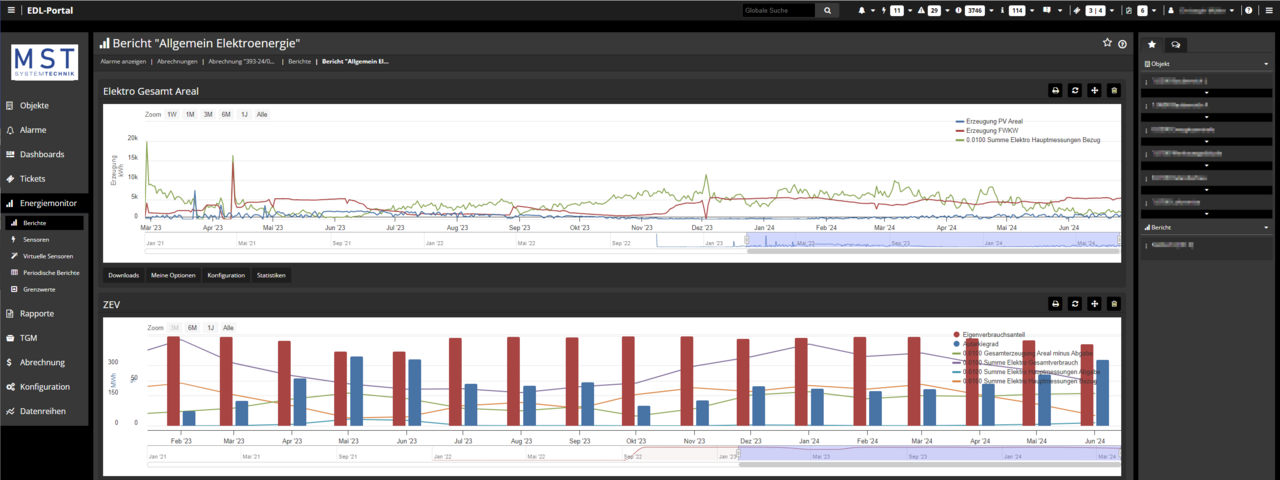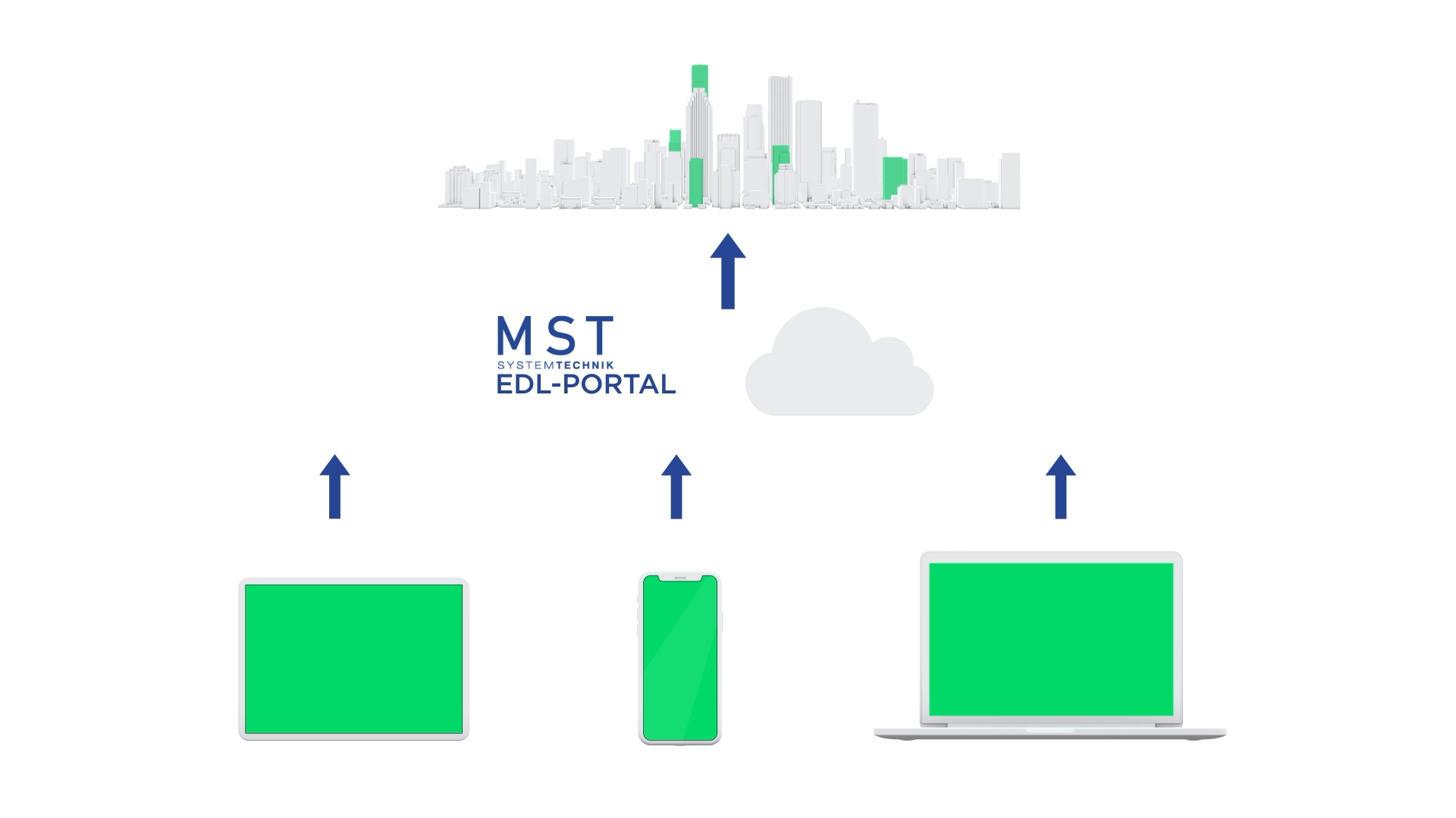
Energy management tools
The EDL portal is a powerful energy management platform that enables users to efficiently monitor, analyze and optimize the energy consumption of their facilities. In conjunction with the EDL portal, various energy management tools offer a comprehensive solution for increasing energy efficiency, reducing costs and achieving sustainability goals.
Functions of the energy management tools in the EDL portal
1. Real-time monitoring
- Data visualization: Real-time dashboards visualize energy consumption and environmental data, giving users instant insights.
- Alarm management: In the event of deviations from defined target values, alarms are triggered and sent to the responsible persons via app, SMS or e-mail.
2. Historical data analysis
- Trend analyses: Historical data is analyzed in order to identify long-term trends and patterns and derive measures to increase efficiency.
- Comparative analysis: The current energy consumption is compared with previous periods and benchmark data in order to evaluate performance.
3. Automation and control
- Rule-based automation: The EDL portal enables automated control of HVAC, lighting and other building services systems based on real-time data and predefined rules.
- Optimization strategies: Automation tools help to optimize energy consumption and avoid peak loads.
4. Alarm and fault management
- Event logs: All alarms and faults are logged in detail so that root cause analyses and troubleshooting measures can be carried out.
- Escalation processes: Users can freely define alarm escalations to ensure that critical issues are resolved quickly.
5. Reporting and certification support
- Regular reports: Automatically generated reports provide regular overviews of energy consumption and operating efficiency.
- Certification support: The EDL portal supports the preparation and implementation of environmental and energy certifications such as DGNB, LEED or BREEAM.
Advantages of the energy management tools in the EDL portal
1. Cost savings
- Significant cost savings can be achieved by optimizing energy consumption and avoiding peak loads.
- Early detection and rectification of faults reduce expensive downtimes and repairs.
2. Increasing energy efficiency
- Efficient use of energy sources and minimization of energy waste contribute to sustainability and environmental protection.
- The integration of renewable energies is facilitated and optimally utilized.
3. Improving operational management
- Precise control of the building's technical systems improves operating efficiency and comfort for building users.
- Security and alarm systems increase the protection and security of the building and its occupants.
4. Support for certifications
- Well-documented energy management supports compliance with legal requirements and international standards.
- Detailed reports make it easier to obtain environmental certificates and certifications.
5. Transparency and monitoring
- Operators receive full transparency about the energy consumption and operating conditions of their systems.
- The ability to make well-founded decisions is significantly improved by detailed reports and analyses.
Conclusion
The EDL portal and the associated energy management tools offer comprehensive options for optimizing energy consumption, improving operational efficiency and supporting sustainability goals. By implementing these tools, operators can achieve significant cost savings, increase energy efficiency and sustainably improve the operation of their technical building systems. Continuous monitoring, detailed analysis and comprehensive reporting help to make informed decisions and ensure long-term sustainable success.

